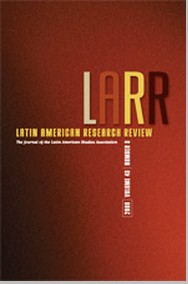Por Jorge Heine para Latin American Research Review, vol. 47, no. 3 (Fall 2012)
América Latina y el Caribe: ¿Integrados o marginados? y Multilateralismo vs. soberanía: La construcción de la Comunidad de Estados Latinoamericanos y Caribeños, forman parte de la colección Relaciones Internacionales coeditada por Flacso Secretaría General y Editorial Teseo.
Compartimos un fragmento del artículo:
«As mostly small or middle-sized powers in a region at the margins of major conflicts in world politics, the nations of Latin America tend to put a premium on a regulated international order that might protect the interests of smaller nations, rather than leaving them at the mercy of the great powers. Not surprisingly, then, the end of the Cold War brought a flurry of multilateral activity to the region, much of it outside the traditional institutions and frameworks of the Pan-American system, as newly democratic regimes moved to occupy the new space created by the end of bipolarity.
One expression of this activity is political cooperation. Several Latin American countries that did not share Washington’s somewhat Manichaean view of the Central American crisis of the 1980s formed the Contadora Group, named for the island off the coast of Panama where the group first met in 1983. This laid the foundations for what came to be known as the Group of Eight, established in 1986, and then the Rio Group in 1990. The latter brought together all the countries of South America plus Mexico, one rotating representative from Central America, and another of CARICOM. With its yearly summits, the Rio Group emerged as perhaps the most significant embodiment of the new multilateralism, although it is now in the process of being replaced by CELAC.»











